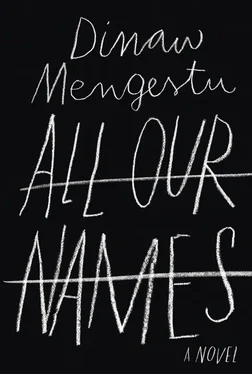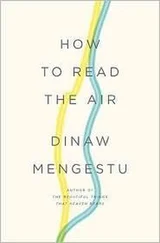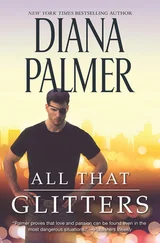I led Isaac up the stairwell.
“I don’t know why, but every house in Laurel has black-and-white photos by the stairs,” I said.
At the very top were the only two pictures we had of my mother’s parents, both of whom died shortly after I was born.
“We’re the opposite of your family.” I pointed to the pictures, which were shot from too great a distance. “We don’t go back much further than this.”
“Look at the size of this house,” he said. “You’re only just beginning.”
Briefly, I saw the house through his eyes. It was built for a large family, for multiple generations to live together at the same time, and perhaps someday it would fulfill that design, but never with me.
I sent Isaac downstairs while I packed. I didn’t linger over anything in my room, which had grown sparer and sparer over the years as I quietly unwound my attachments, carting boxes of clothes and photographs into the basement, where I knew they were safe, until all that was left was a bed, a bookcase, and a desk that looked out onto a large backyard overrun with weeds. I had never made any serious plans to leave Laurel, and yet long before Isaac, a part of me was gone.
It took me a few minutes to pack. When I returned to the living room, Isaac and my mother had already started their tea. They were hardly speaking; both were focused on getting their cups to their lips without spilling. The act had gone on long enough. I kissed my mother on the cheek and whispered that it was time for us to leave. She held on to my wrist and whispered back: “Helen, please be careful who sees you. If not for yourself, then for his sake.”
When I woke the next morning, Isaac was standing over me, nudging me gently in the back with his foot. The courtyard was littered with still-drunk soldiers, many of whom had fallen asleep with empty bottles and their guns tucked in their arms. I had fallen asleep listening to a group of them debate whether they were revolutionaries or liberators. They seemed to split evenly down the middle until, finally, one pointed out that there was no rule saying they couldn’t be both. “We are revolutionary liberators,” he said, and to celebrate their new titles, they banged their bottles together, finished what was left in them, and then tossed them as far as they could over the hotel walls, to shatter on the road, where most children and many women walked barefoot.
I followed Isaac out of the courtyard. That we were leaving just before dawn, when there were still a few stars left on the northern edge of the sky, gave me hope that he had decided our life of war had gone on long enough. I had a general idea of where we were in the country, and I felt confident that if we had a car we could reach at least three different borders by midday, and that Joseph would be too concerned with his army’s next advance to chase us. I had dreamed of big cities my entire life, but what I wanted for us was to find the smallest village possible — an idyllic, forgotten hamlet, like the ones we had passed in the foothills, but near a river or, better yet, within earshot of a waterfall. There was so much vast, empty space across the continent that I had no reason to believe it wasn’t possible. We just had to find one of the dozens, or maybe even hundreds of hidden pockets where no one cared about borders.
I thought I had found a way to explain to Isaac why we had to leave. I was going to tell him that this wasn’t the fight he expected, and that there were other things that could be done with our lives but to do them we had to get out while we could. I whispered his name as I walked up the main road.
“Isaac,” I said, but, rather than turn around, he held up his hand and continued walking.
I was anxious but not scared. It was the best time to be alone in a village. There were a few signs of early-morning life in some of the houses farther up the road, and it was possible to believe at that hour that life here would go on as normal, that tea would be made and bread baked; men would go off to tend their fields while the women gathered water and dressed their children for school until the sun reached its peak and everyone retreated indoors to wait out the heat.
We continued up the main road in silence, listening to the last roosters left alive cackle at one another, until we reached the bronze fist where Joseph had delivered his speech a few days earlier. Once there, Isaac turned to me and said:
“Now we wait.”
“For what?”
He motioned with his finger for me to stop talking.
• • •
The sun was above the horizon when a man with a small boy and two donkeys trailing behind them emerged from the footpath that branched off the main road.
“This is where we say goodbye,” Isaac told me. I looked at the man and child closely. They were clearly father and son, with the same wide, sloping forehead; on the child it seemed to take too much space, but it gave the man a gentle, almost feminine quality.
“Why now?” I asked him.
“We’re leaving this evening,” he said. “Joseph has other villages he wants to conquer.”
“And where do I go?”
He pointed to the man, who appeared to be whispering something important to one of the donkeys.
“He has someplace safe to take you. Stay there. Rest. Get strong, and then go east. I’ve heard it’s quiet there. Whatever you do, don’t come back. Also, don’t go south; I hear there are problems there.”
“And north?”
“Not so good. There are more problems.”
“And what will you do?”
He threw his arm around my shoulder. He pointed straight ahead and then slowly moved his finger from left to right, drawing an imaginary line across the horizon.
“There is nothing else out there for me except this?”
We had more we wanted to say — there were apologies that should have been made, forgiveness to have been granted — but the village was waking up, despite the late night. We could smell the charcoal burning in the gardens and hear people in the street. Joseph was certainly up by now.
“How long will you be gone?” I asked him.
“Joseph says it should be over in two days. He says there will be no resistance.”
It was the wrong question to ask when saying goodbye. The talk of war turned him. He snapped back into form.
“Enough of this,” he said.
He held out his hand. I shook it. He took a bundle of notes from his pocket and gave it to the man. They talked between themselves for a few seconds, and then Isaac gave him a pat on the back of his head. Before walking away, he said, “One donkey is yours if you want to keep it.”
Isaac turned south, back to the hotel, while I headed west, along the same path the man and his boy had come from. One of the small wonders of village life was how quickly nature reclaimed its dominance, as if the life of a town was little more than a minor disturbance to an otherwise wild world. After a few minutes of walking, there was hardly any sound other than that of birds; by the time we had traveled a half-mile, the trees had all but swallowed the footpath we were on. We walked for more than an hour, until we reached a clearing where maybe a dozen thatch-roofed huts stood a few feet apart from one another, each surrounded by a wooden fence to pen in the chickens, and the children when the adults were away. It was the idyllic corner of the world I had been hoping to find, and though that vision was little more than the fantasy of someone desperate for refuge, I was determined to preserve it for as long as possible. I knew it wouldn’t last; even if there wasn’t a war on the horizon, if I stayed long enough I’d find all the petty complaints and frustrations of life here just as easily I had found them in the capital and in my own childhood home. But there wasn’t much time anyway: Joseph’s soldiers were going to take the next city that evening, which meant many of them would leave within the hour. If they won, they would return within the next few days; if they were slaughtered, the army would finish the rest of them, holed up at the hotel. In either case, it was only a matter of time before nothing was safe.
Читать дальше












